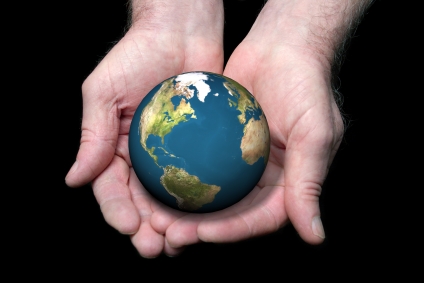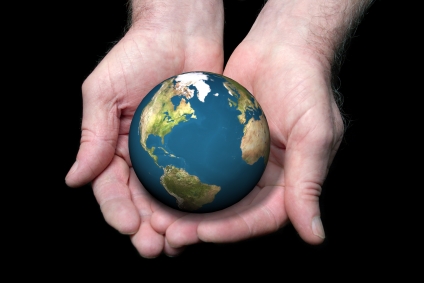Threats to Earth: 7 Little-Known Ecological Hazards


Threats to the environment lurk among the things we see and use every day. We’ve singled out seven secret polluters whose negative impact on the planet is worse than it may seem.
Mobile Phones
Like other electronics manufactured with rare earth elements, cell phones harm the environment twice, during their creation and their disposal. Many cell phones contain a rare mineral called coltan in their electronics. Most coltan comes from the Democratic Republic of the Congo, where the roving armies that control coltan mining use environmentally unsound mining techniques and kill the local gorilla population, according to United Nation reports. Then, when a cell phone gets thrown out, toxic chemicals in its electronics, plastics and batteries can pollute soil and ground water if not properly handled, said Steven Cohen, an environmental specialist at Columbia University.
Concrete
The manufacturing process for concrete is carbon intensive and contributes significantly to the greenhouse effect, said Stuart Gaffin, an environmental scientist at NASA’s Goddard Institute For Space Studies. Even worse, the concrete infrastructure of cities prevents rain water from entering into the soil, Gaffin told LiveScience. This excess water overwhelms metropolitan processing systems, which can then fill local waterways with human fecal bacteria and other pollutants.
Biofuels
Recent research has shown some biofuels can be as bad for the planet as the fossil fuels they're designed to replace. Growing crops, such as corn and switchgrass, in order to produce biofuels displaces farms from arable land and drives farmers to cut down forests that would otherwise absorb carbon dioxide from the atmosphere, according to two 2008 studies in the journal Science. Additionally, producing the fertilizers needed for biofuel farming releases the greenhouse gas nitrous oxide. This negates any carbon emissions that are saved by using these fuels, said Amy Townsend-Small, a researcher in at the University of California, Irvine.
Sign up for the Live Science daily newsletter now
Get the world’s most fascinating discoveries delivered straight to your inbox.
Batteries
Thanks to the expansion of portable electronics, battery use has proliferated exponentially. They contain a range of harmful chemicals, and when improperly disposed of, those toxic chemicals leach into ground water, poisoning humans and wildlife, said Cohen.
Public Parks
While a green space in the center of a city may seem like a respite from an otherwise toxic urban area, new research shows that even parks may hurt the planet. Manicured public lawns require water, energy and fertilizers to maintain. A study of public parks in California found that they actually contribute to climate change, said Townsend-Small. Similarly, artificial turf parks made from old tires can leak heavy metals into the ground, Gaffin said.
The Internet
Behind every Google search or ESPN score update, computers use electricity that was generated somehow, often by the burning of fossil fuels. The Internet is a significant contributor to yearly carbon emissions. A controversial calculation by Harvard physicist Alex Wissner-Gross concluded that two Google searches puts as much carbon dioxide into the air as boiling a kettle of water for a cup of tea. Google disputed the work, but nobody argues that the Internet consumes massive amounts of energy. The global information technology industry generates about as much carbon dioxide all airlines combined, some 2 percent of global CO2 emissions, industry analyst Gartner has reported.
Pets
And perhaps most surprisingly of all, it seems that Rover and Fluffy have significant carbon pawprints of their own. In his 2009 book "Time to Eat the Dog? The Real Guide To Sustainable Living" (Thames & Hudson, 2009) author Robert Vale calculated that the production of the amount of meat consumed by a medium sized dog through commercial dog food contributes as much greenhouse gas to the atmosphere as a large car. On the upside, it’s safe to say that pets do contain far fewer dangerous toxins than batteries, computers, or power plants.
- 101 Amazing Earth Facts
- Top 10 Surprising Results of Global Warming
- What's Your Environmental Footprint?









